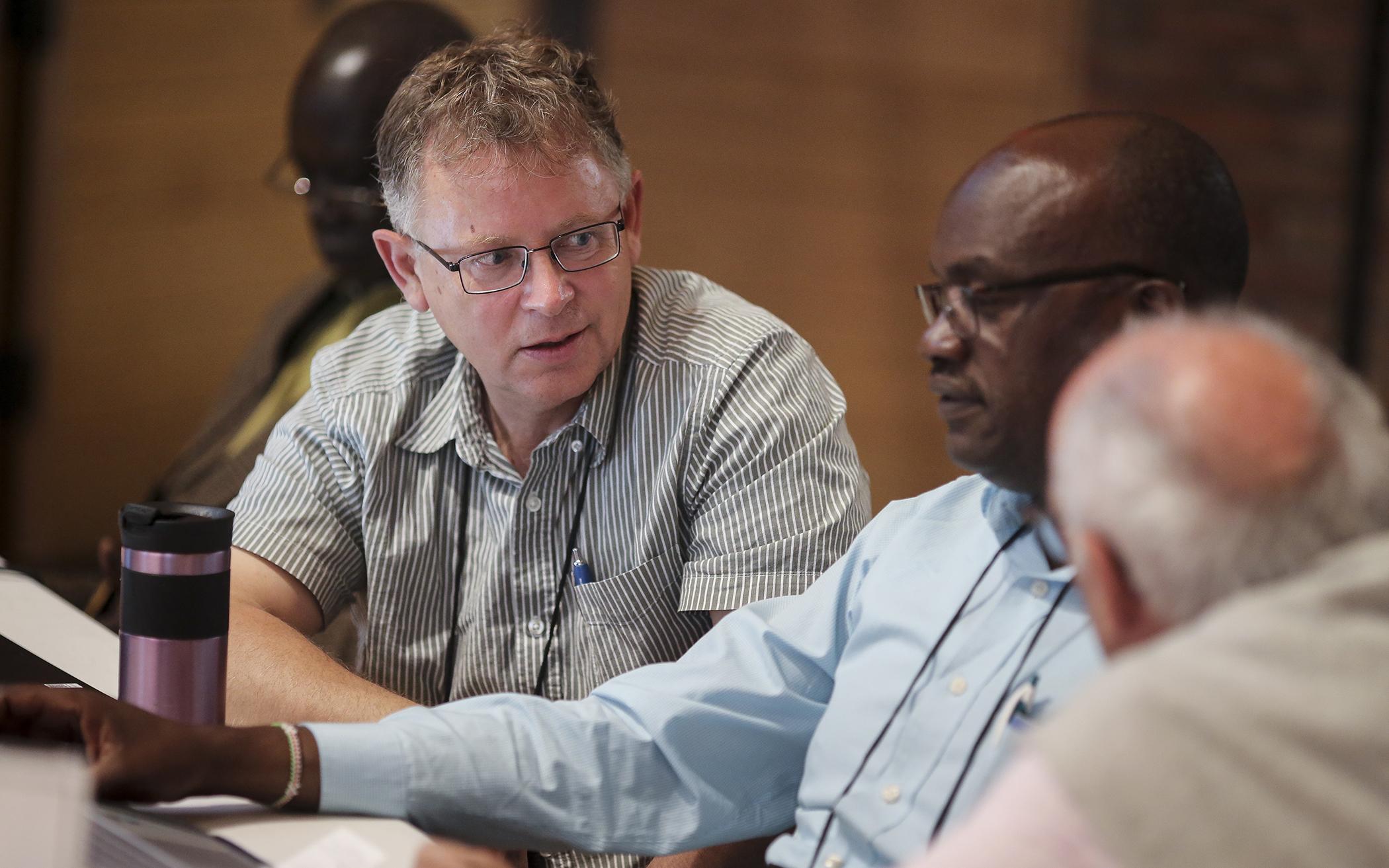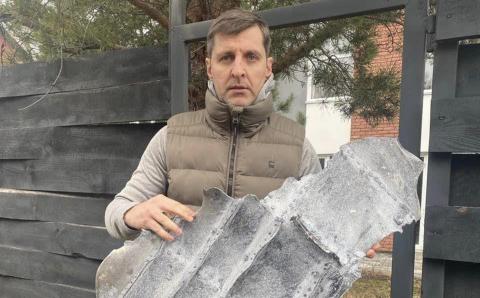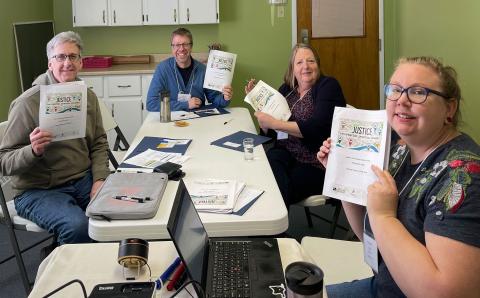Over its six days of meeting (with a day off on Sunday, June 15), Synod 2024 acted on recommendations from 38 different reports, some of them with minority and majority opinions. The Banner reported on most of the actions as they happened June 14-20, but some items passed with little to no discussion. Here are those things that synod did or didn’t do.
Synod 2024
- thanked William T. Koopmans, James Joosse, and Ruth Hofman for serving the cause of ecumenicity for the CRC, and reappointed Joy Engelsman to a second three-year term on the Ecumenical and Interfaith Relations Committee, one of three standing committees of synod
- took note of the EIRC’s progress report regarding the relationship with the Alliance of Reformed Churches as a church in cooperation, with a view toward its transitioning to the status of church in communion in the future
- commended the work of the candidacy committee, encouraged councils and Classis Ministry Leadership Teams of all classes to identify potential leaders, and instructed the Candidacy Committee to “explore the development of more consistent approaches to contextual individualized learning plans for Commissioned Pastors”
- approved an addition to Church Article Order 24 regarding the recommissioning of former commissioned pastors, requiring commissioned pastors who were released from office to receive approval from their previous classis to seek re-examination
- adopted changes to Church Order Articles 14, 15, and 23 and their supplements as proposed by Synod 2023 in support of bivocational pastors
-
approved to recommend to Synod 2025 over 100 pages of proposed changes to Church Order Articles 12-13, 8, 14-17, and 42 along with the addenda A – F (Agenda for Synod 2024, pp. 63-166)
- approved Jack Beeksma and Adam Ramirez, previously appointed as interim board members by the Council of Delegates, as board members to the Calvin University Board of Trustees
- regarding Communication 5, instructed Classis Holland to meet with one of its member-churches, Church of the Savior of South Bend, Ill., to discuss a confessional-revision gravamen submitted by a church member
- received Communications 7 and 9, from members of Fourteenth Street CRC of Holland, Mich., and from the Council of Fourteenth Street CRC of Holland, Mich., for information, with no action
- thanked Lain Martinez Vasquez “for the pastoral heart displayed in Communication 10,” receiving it for information
- recognized Communication 11, from a young member of River Park CRC in Calgary, Alta., “celebrating the author’s courage in its creation and the thoughtfulness in its expression”
- commended the work of World Renew, ReFrame, and Resonate Global Mission and recognized ReFrame’s 85th anniversary and celebrated Resonate’s 33 anticipated church plants for the coming year
- took note of the six years of observance of the Day of Justice, which will no longer be observed in that form, with denominational resources
- received for information the report on CRCNA statements on social, economic, or political matters
- acknowledged and thanked former Centre for Public Dialogue director Mike Hogeterp for his 21 years of service to the ministry of CPD
- commended co-directors Lesli van Milligen and Chris Schoon for their work leading Thrive, receiving their report for information and recognizing the 30th anniversary of the work of safe church, now part of Thrive
- received for information the Indigenous Ministry (Canada) report and thanked Adrian Jacobs for his ongoing work as the senior leader for Indigenous justice and reconciliation (Canada)
- lamented “that racism continues to be present in our world” and encouraged churches to continue to engage in racial reconciliation, including the use of the 1996 synodical report “God’s Diverse and Unified Family” and the recently produced Hearts Exchanged program (this was in response to Overtures 8 and 9)
- received a presentation from Jul Medenblik, president of Calvin Theological Seminary, learning “we are a global community of faith” with students from 28 countries represented in the student body
- received a greeting and welcome from Calvin University’s interim president Gregory Elzinga, and learned that Calvin’s Board of Trustees and the university’s former president Wiebe Boer have settled their legal dispute
- declared its response to Overture 17 (a request to articulate what is expected of confessing members when agreeing with the confessions) to also be its response to Overture 32 (a request to clarify how the definition of “unchastity,” decided upon at Synod 2022, “functions in the life of” the denomination)
- received the report of the Judicial Code Review Team, adopted the seven recommended changes to Church Order Supplement, Article 30-c, Judicial Code of Rights and Procedures, and approved the revised text of Church Order Supplement, Article 30-c
Synod 2024 did not:
- accede to the request of Overture 1 to designate the role of the Council of Delegates as “administrative and advisory only” in the nomination process of its members
- approve a request for apology to a Council of Delegates nominee over previous interpretations of the guidelines
- establish a conflict of interest policy for delegates to synod, saying “a simple adaptation of the COD Conflict of Interest Policy is not possible” because “the potential conflicts of interest for synodical delegates and COD delegates are considerably different”
- introduce elections for synod parliamentarians, leaving the selection of this annual functionary to the Program Committee
- accede to two requests to “shepherd congregations into another denomination” or “shape a gentle pathway for those departing the CRCNA,” saying that Thrive already offers support for disaffiliating churches
- accede to a request to “enable listening to facilitate discernment” (Overture 69, deferred from 2023), saying officebearers “are already permitted to collaborate with others on a confessional-revision gravamina”
- appoint a committee to explore the need for a CRCNA licensing board for CRCNA pastors
- accede to a request to restore a footnoted portion of the Belgic Confession back to the body of the confession, because the footnoted section of Article 36, created by Synod 1958, “is still available in denominationally provided resources for discussion if churches or individuals want to use it” and “a change to a confession requires a high bar and substantial effort”
- solicit resources for LGBTQ ministry from the churches, noting Thrive has resources for use by CRCNA churches, and churches in agreement with the CRC’s position on human sexuality who are engaged with the LGBTQ+ community may already share their work with the Office of General Secretary
- suspend the work of the Dignity Team, the mandate for which should come to Synod 2025 for approval
Synod 2024 met June 14-20 at Calvin University in Grand Rapids, Mich. Find articles from The Banner’s daily coverage at thebanner.org/synod. Visit crcna.org/synod for the Agenda for Synod, advisory committee reports, and recordings of the synod sessions. Synod is the annual general assembly of the Christian Reformed Church.
About the Author
Alissa Vernon is the news editor for The Banner.









